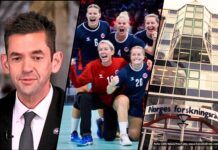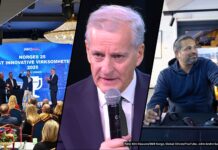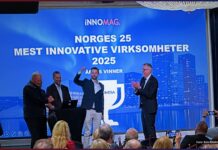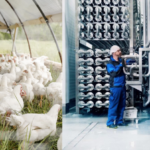Nye kriser krever nye måter å tenke på. Hollandske eksperter innen åpen innovasjon og organisasjonsutvikling skriver om en utradisjonell tenkemåte, som ved kreative kombinasjoner kan generere både nyskapning og ulike måter å løse problemer på.
 An unconventional crisis requires an unconventional solution – Paul Iske and Hubert Saint‐Onge
An unconventional crisis requires an unconventional solution – Paul Iske and Hubert Saint‐Onge
«We need new ways of thinking to solve problems caused by the old ways of thinking»- Albert Einstein
Worldwide, financial and economic experts struggle to make sense of the credit crisis and the resulting economic recession and to find meaningful solutions. Everyone agrees that the situation contains unprecedented aspects, so that applications of lessons from the past do not guarantee success. We will need a paradigm shift to sort this out. As Einstein said: “We need new ways of thinking to solve problems caused by the old ways of thinking.” It seems naive to believe that the answers to the current challenges can be found exclusively within traditional disciplines dealing with finance and economics. Let’s face it: the conventional experts didn’t predict the crisis to the full extent and for sure they didn’t stop it from happening! Therefore, we need ‘new combinations’, in other words the involvement of other areas of expertise. We propose to leverage the creativity and the paradigm shifts that can be produced when we bring different disciplines into collaborative thinking where combination of the knowledge of many from different perspectives will result in significant new insights and results.
The idea is to bring together parties who usually don’t exchange ideas to engage in ‘collaborative thinking’. For instance, the developers of operating systems like Microsoft Windows may bring an interesting frame of mind. To this discussion. As many users have experience, a complex system such as Windows tends to ‘crash’ every now and then. However, to reduce the pain, ‘System Restore’ has been developed, which enables to bring the system back in a state before the occurrence of a problem. Maybe, this notion could apply to the financial system to ensure an early recovery from a serious problem. Lehmann Brothers bankrupt? Whoops! Let’s use system restore and try it again! We can ask developers from the open source community to participate, since they know how to start from scratch instead of patching and expanding systems.
Use an expert from the gaming industry. A mistake there will cost you a live and losing three lives means that you are out of the game. In that case, you need to acquire a new identity. Or ask a composer to transcribe (part of) the system to music. How does it sound? Does it contain bombastic, effect‐driven effects? Or an immunologist who knows how the immune system reacts on attacks from the outside and, sometimes, from the inside? You might also think about an Eastern philosopher with the credo: “Less is More”.
The list of disciplines can be quite long: Physics ‐dealing with conservation laws, which seem sometimes to be absent in certain economic processes like stock trading‐, Esthetics and/or Design ‐ looking at the elegance of the system‐, Legal/Philosophy ‐addressing the best way of placing restraints on the system for risk and fairness‐ or Social Anthropology ‐looking at patterns of behaviours to predict how people will act through the different dynamics of the system.
Ensuring that these conversations are productive and that all participants approach them with an open mind, can be tackled with careful orchestration and facilitation. Our ability to build effective collaboration has vastly improved in the last few years. Beyond face‐to‐face meetings, we can use modern tools, such as jamming (applied by IBM for collaborative problem solving), Wikipedia‐like approaches and social network tools like Twitter and Hyves. All this can be brought to bear to leverage the multiple perspectives that will give us creative new solutions to apparently
untractactable problems. No World Economic Forum or G7 or G20 can beat the power of the ‘human thinking grid’ based on creative collaboration.
Oostzaan (NL), Waterloo (Can), April,2009

*Dr. Paul Louis Iske (paul.iske@knocom.com) is an expert on smart and innovative entrepreneurship which combines innovation, entrepreneurship, knowledge management and collaboration. As ‘Consulting Challenger’ he invites his clients to make the extra step and to look beyond the obvious.

** Hubert Saint‐Onge (Hubert@saintongealliance.com) is an independent consultant who works internationally with a focus on organization strategy, culture alignment, talent management, leadership development and the integration of newly acquired organizations.








